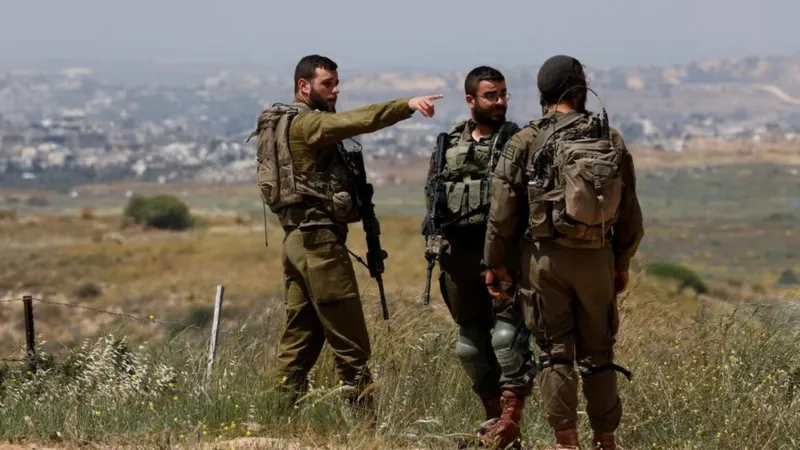Can US Intervention Bring Israel-Hamas Truce to Gaza?
Negotiating a truce between Israel and Hamas in Gaza has proven to be a challenging task, with weeks of talks failing to yield an agreement. Despite the difficulties, international pressure for a resolution is mounting, notably evidenced by the Biden administration’s dispatch of CIA Director William Burns for the latest round of discussions in Cairo.
Hamas has publicly maintained its initial demands for a permanent ceasefire, the complete withdrawal of Israeli troops, and the return of displaced Palestinians to northern parts of Gaza without restrictions. Conversely, Israeli Prime Minister Benjamin Netanyahu insists on continued fighting until Hamas is dismantled and hostages held by the group are freed.
Observing the increased American pressure, negotiator Gershon Baskin noted the significance of the head of the CIA’s involvement, indicative of heightened American involvement in the negotiations. However, despite this pressure, a conclusive deal remains elusive.
Amid mounting frustration among its key allies, particularly the US, Israeli officials have signaled a willingness to make concessions. Israeli Defense Minister Yoav Gallant suggested that the time was ripe for a truce, reflecting growing domestic and international calls for de-escalation.
Proposed terms of a potential agreement include the release of some hostages captured in Hamas attacks in exchange for Palestinian prisoners held in Israeli jails. However, complications arise as Hamas reportedly denies holding as many hostages as claimed, raising questions about the status of those unaccounted for.
Within Israel, Prime Minister Netanyahu faces challenges from various sectors of society and politics. While there is broad public support for the war, there are increasing demands for a deal to secure the hostages’ release. Protests by hostage families accuse Netanyahu of prioritizing political survival over their loved ones’ plight, leading to mounting calls for his resignation.
Meanwhile, divisions within Netanyahu’s coalition government add further complexity. Ultraright, nationalist allies oppose concessions to Hamas and advocate for the continuation of the war. This internal discord limits Netanyahu’s maneuverability in negotiations.
Hamas has yet to provide a formal response to the latest proposal but has indicated interest in an agreement that ends aggression against its people. However, the proposed terms fall short of Hamas’s demands, prolonging the impasse.
The decision ultimately rests with Yahya Sinwar, Hamas’s leader in Gaza, who is reportedly difficult to communicate with. Hamas seeks guarantees of a permanent ceasefire, fearing further Israeli attacks even after releasing hostages.
As the negotiations continue, Hamas may believe that growing international criticism of Israel and the dire humanitarian situation in Gaza will eventually force concessions. However, the path to a resolution remains uncertain, contingent on the readiness of decision-makers on both sides to compromise and find common ground.


















